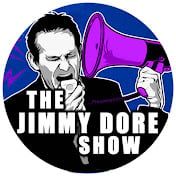“Jimmy Dore is outrageous and outraged, bothersome and bothered. A crucial, profane, passionate voice for progressives and free-thinkers in 21st century America. Jimmy will anger you if you’re a conservative and enrage you if you’re a liberal.”—Patton Oswalt
Key Points:
- Economic Impact: The strike highlights the interconnectedness of the economy; disruptions at ports can lead to widespread shortages affecting various industries. This showcases how essential dockworkers are to the supply chain.
- Wealth Disparity: The stark difference between corporate profits and workers’ wages underscores the growing income inequality in the U.S. This disparity fuels the need for unions to advocate for fair pay.
- Automation Concerns: Workers are concerned about job security with increasing automation. Their demands for protections highlight the need to balance technological advancement with labor rights.
- Union Power: The strike demonstrates the critical role of unions in negotiating better conditions for workers, emphasizing that collective action is necessary to challenge corporate power.
- Historical Context: This strike is the first major dockworker strike since 1977, indicating a significant moment in labor history and a call for renewed focus on workers’ rights.
- Public Perception: The media narrative often shifts blame onto workers during strikes, revealing societal biases against labor movements and the need for public education on workers’ rights.
- Solidarity Across Professions: The solidarity shown among dockworkers mirrors similar movements in other sectors, reinforcing the idea that all workers deserve fair treatment and compensation, echoing the sentiment that “an injury to one is an injury to all.”
You must log in or register to comment.

